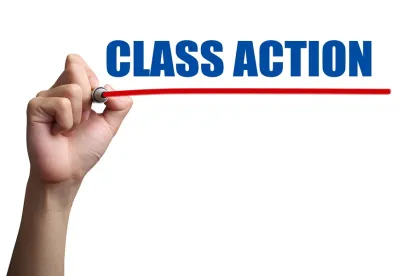It is a party that most employers don’t believe is a lot of fun: a FLSA collective action party. In a case of first impression, the Eleventh Circuit addressed the question of whether an opt-in plaintiff is required to do anything beyond filing a written consent to become a party plaintiff in a collective action under the FLSA, 29 U.S.C. §216(b).
In Mickles, on behalf of herself and all others similarly situated v. Country Club, Inc., No. 16-17484 (11th Cir. April 18, 2018), Mickles alleged that Country Club improperly classified her and others as independent contractors and, as a result, failed to pay them proper minimum wage and overtime compensation. After Mickles filed the Complaint, other individuals opted into the litigation by filing consents to become party plaintiffs. Thereafter, the court denied Mickles’ motion for conditional certification on the grounds that it was untimely.
Country Club filed a motion for clarification as to the order on conditional certification, inquiring about what individual plaintiffs remained parties in the action. Country Club believed that the individuals who filed written consents never formally became party plaintiffs. Country Club argued that the individuals who filed consents effectively fell out of the case when the motion for conditional certification was denied, leaving only Mickles as a party plaintiff. The district court entered a clarification order stating that the individuals who filed written consents were never found to be similarly situated to Mickles and, therefore, were not properly added as party plaintiffs to the collective action.
The individuals who filed consents (“Appellants”) appealed the district court’s decision. In reviewing the district court’s opinion, the Eleventh Circuit outlined the two requirements for a FLSA collective action: 1) plaintiff must file a complaint on behalf of herself and all other similarly situated employees; and 2) an opt-in plaintiff must file her consent in writing to become a party. Country Club argued that the first requirement was not satisfied, because the individuals who filed consents were never found to be similarly situated to Mickles. Thus, the Eleventh Circuit had to address the status of those individuals who filed consents before conditional certification was granted.
The Eleventh Circuit held that conditional certification was unnecessary to obtain party-plaintiff status. The only purpose of conditional certification, it found, is to disseminate court-approved written notice to others allegedly similarly situated. Those individuals become parties once they file written consents. The plain language of §216(b) further supports that nothing beyond filing a written consent is required to become party plaintiffs in a FLSA collective action. Thus, the Eleventh Circuit vacated the district court’s clarification order and remanded with instructions for the district court to either: 1) dismiss the Appellants from the case without prejudice to refile; or 2) move forward with the Appellants’ individual cases since discovery had been completed. This, the Eleventh Circuit held, ensured that the Appellants’ claims were not precluded from pursuing their claims due to the running of the statute of limitations, which the court emphasized was a drastic remedy.
Conditional certification requires a low threshold showing and is often granted. We have had great success, however, in defeating conditional certification in certain cases through the use of affidavits by employees and supervisors rebutting the policy or practice at issue or the contention that plaintiff is similarly situated to the proposed putative class. After the celebration of defeating conditional certification is over, the employer still must attend to defense of all named and opt-in plaintiffs’ claims. The posture of the case drastically changes if conditional certification is denied. But it is imperative to focus on successfully addressing the claims of remaining individual plaintiffs, which could dictate whether additional plaintiffs file individual claims and how they litigate their cases.




 />i
/>i

